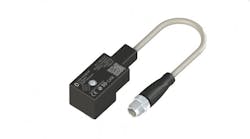One of these subjects is filtration. If you’re a regular reader, you know that any given issue covers some aspect of filtration more often than not. Filtration has been a hot topic for years, and I have learned a great deal by editing scores of articles and organizing seminars on the subject. One of my observations is that keeping fluid clean in an industrial (stationery) hydraulic system seems to pose less of a challenge than in mobile hydraulic systems.
If contamination is particularly nasty in an industrial environment, offline filtration systems can help in-line filters keep the fluid clean. Plus, the nature of contaminants is probably more predictable because the machine is always in the same location. And it’s probably easier to keep dirt out of reservoirs because it’s easier to monitor the presence of breathers and other vital components.
Mobile hydraulic systems, on the other, hand, usually are exposed to wide swings in temperature; dirt and moisture attack from all different directions; and unless a well-planned and executed preventive maintenance program is followed, equipment may go for months before filters are changed or fluid is tested for contamination — if ever. Unfortunately, contaminated fluid often is not discovered until after equipment has suffered some sort of malfunction.
So whether you work primarily with hydraulic systems on stationary equipment, or with mobile hydraulic systems, if you’re able to hold the upper hand on fluid contamination, you either work for one of the rare organizations that takes preventive maintenance seriously, or you’re a miracle worker.


